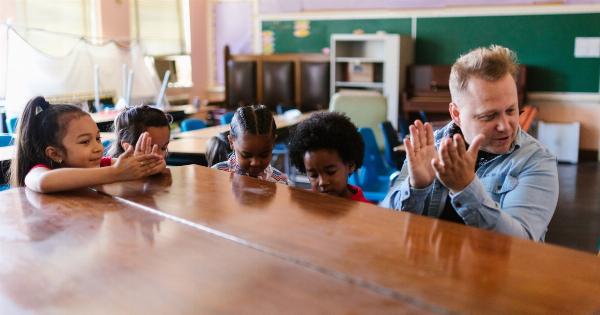Music education has long been praised for its ability to enhance cognitive skills, boost academic performance, and foster emotional development in children.
However, recent studies have also found a surprising link between children’s participation in music education and their earnings later in life. This connection suggests that music education offers significant long-term benefits beyond its immediate impact on the mind and emotions.
Enhancing Academic Performance
One of the most well-known advantages of music education is its positive impact on academic performance. Research has consistently shown that children involved in music programs tend to excel in subjects like math, science, and languages.
This correlation can be attributed to the development of cognitive abilities, such as attention, memory, and problem-solving skills, through the practice of music.
Boosting Cognitive Skills
Engaging with music can stimulate various parts of the brain and enhance cognitive skills, including pattern recognition, spatial-temporal skills, and executive functions.
These skills are not only important for academic success but are also valuable assets in the job market. By honing these skills through music education, children can gain an advantage that may contribute to higher earnings in the future.
Developing Emotional Intelligence
Music has a profound impact on emotions and can serve as a vehicle for emotional expression and self-reflection.
When children learn to play an instrument or sing, they often tap into their emotions, learn to interpret and convey different moods, and develop empathy and emotional intelligence. These qualities are highly valued in many professions that require interpersonal skills, leadership, and the ability to connect with others, ultimately leading to improved career prospects and higher earnings.
Fostering Social Skills
Participating in music education provides numerous opportunities for collaboration, teamwork, and social interaction.
Whether it’s playing in an ensemble, participating in a choir, or joining a band, children engage with peers, learn to work together towards a common goal, and develop important social skills. These skills, such as communication, cooperation, and negotiation, are not only relevant in music contexts but also highly transferable to various professional environments.
Consequently, individuals with strong social skills often have a competitive advantage in the job market, potentially resulting in higher earnings.
Unleashing Creativity and Innovation
Music education encourages children to think creatively, explore ideas, and experiment with different approaches.
By engaging in improvisation, composition, and even music theory, children learn to think outside the box and unleash their creative potential. This ability to think creatively and innovate is highly sought after in many industries, particularly those that value problem-solving, entrepreneurship, and strategic thinking.
Thus, the creative skills developed through music education can contribute to increased career opportunities and earnings.
Improving Discipline and Perseverance
Learning to play a musical instrument or master vocal techniques requires discipline, patience, and persistence. It requires regular practice, setting goals, and overcoming challenges.
Through music education, children develop a strong work ethic and learn the value of perseverance and dedication. These qualities are traits that employers often look for in potential hires. The ability to stay focused, work hard, and persist in the face of difficulties can greatly increase the chances of career success and higher earnings.
Expanding Cultural Understanding
Music is a powerful tool for cultural exchange and understanding. By learning and appreciating different styles of music from various cultures, children develop a broader perspective and a deeper understanding of the world.
This cultural sensitivity is highly valued in today’s globalized workforce, where individuals who possess a multicultural understanding can navigate diverse environments more effectively. Employees with an international mindset often have access to better job opportunities and higher earnings.
Building Confidence and Self-Esteem
Participating in music education can have a significant impact on a child’s confidence and self-esteem.
Overcoming performance anxiety, receiving positive feedback, and achieving personal goals contribute to a sense of accomplishment and self-worth. Moreover, performing in front of an audience, whether it’s a small recital or a large concert, fosters self-assurance and public speaking abilities.
These attributes are highly valuable in many professions, such as sales, public relations, and leadership roles, which often lead to higher earnings.
Connecting with Career Opportunities
For some children, music education can be a pathway to future career opportunities in the music industry.
Whether it’s becoming a professional musician, music teacher, or music producer, the skills and knowledge gained through music education lay the foundation for pursuing a career in the field. The music industry offers numerous avenues for success, and individuals who have received quality music education are better equipped to capitalize on these opportunities.
Careers in music can be financially rewarding, further strengthening the link between music education and kids’ earnings.
Conclusion
It is clear that music education offers significant benefits beyond the realm of music itself. The connection between music education and kids’ earnings highlights the potential long-term advantages for children who engage in music programs.
From enhancing academic performance and cognitive skills to fostering emotional development, social skills, and creativity, music education equips children with valuable assets that can contribute to future success and higher earnings. Investing in music education has the power to positively impact children’s lives and open doors to a range of rewarding career opportunities.




























